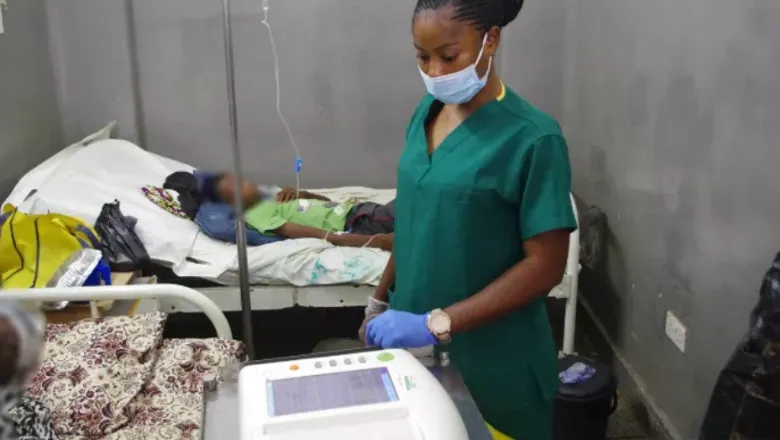The research into common risk factors for stroke, type of stroke and outcomes of stroke in Sierra Leone uncovers a need for improved stroke care in the region

Stroke is the second leading cause of adult death in Africa. However, in many African countries little is known about the risk factors for stroke, which types of strokes occur, and the outcomes after stroke.
The Stroke in Sierra Leone register, a four-year collaborative study conducted by King's College London, King's Global Health Partnerships, and the College of Medicine and Allied Health Sciences, aimed to demonstrate the risk factors for stroke, prevalence of stroke types and the outcomes after stroke for patients and communities for the first time.
The study recruited 986 patients with stroke in Freetown, Sierra Leone, making it one of the largest cohort studies of stroke undertaken in Africa. Participants were provided CT scans to determine the type of stroke they had suffered, revealing that 63% of patients had ischaemic stroke, 21% had primary intracerebral haemorrhage, 25 (3%) subarachnoid haemorrhage and 13% of patients were too sick to access CT scanning.
Researchers found that stroke patients were on average 59 years old – younger than in other regions – while outcomes after stroke were also worse than in other regions. At 30 days after stroke, 37% of patients had died, by 90 days 44%, at one year 49.9% and 53.2% at two years.
Factors associated with increased death were male sex, previous stroke, atrial fibrillation, subarachnoid haemorrhage, undetermined stroke type and in-hospital complications. The register reported that strokes caused significant disability: 93% of patients were completely independent seven days prior to their stroke, by one year post stroke only 19% were independent with assistance.
The register identified several key priorities for improvement, including:
- prevention of stroke related complications through implementation of stroke unit based care;
- an urgent need for aspiration pneumonia prevention through swallowing screening and assessment; and
- increased detection and improved management of atrial fibrillation, and enhanced coverage of secondary prevention of stroke.
The high rate of CT scanning and follow-up of patients in this study demonstrate that high quality stroke research can be undertaken in a low-income country setting. To date, the findings have prompted the Ministry of Health and Sanitation to implement specialist stroke unit based care at Connaught Hospital. Further research should assess how to improve access and quality of care for patients with stroke in countries with limited numbers of stroke specialist healthcare workers.
This study is important because it the impact of stroke and the challenges it presents to patients, their families and health care professionals. Let us remember, the fight to make a good quality of life possible after stroke is a fight we must all embrace, as stroke can happen to anyone." – Mr Jotham Johnson, Vice President Stroke Association Sierra Leone






